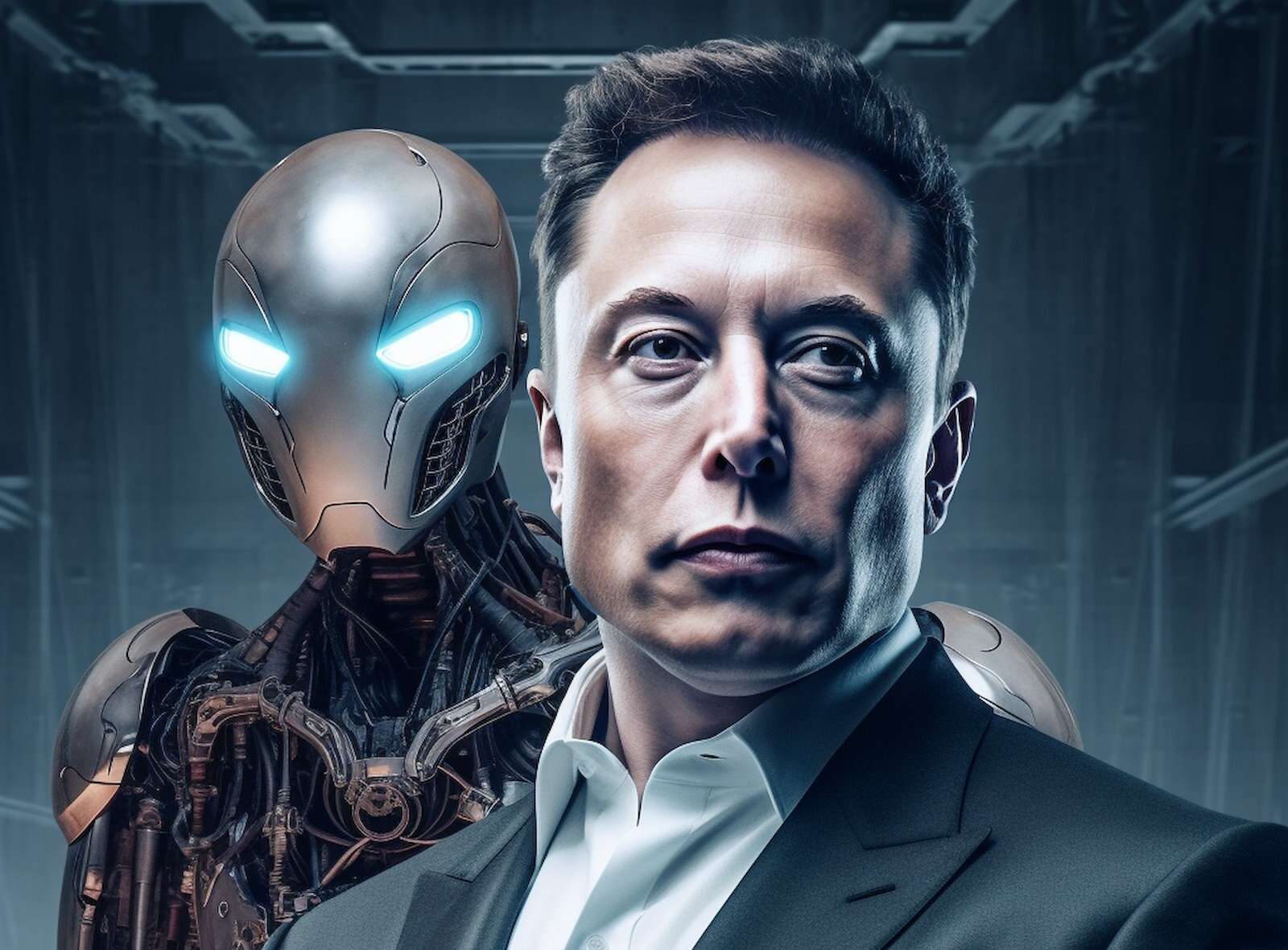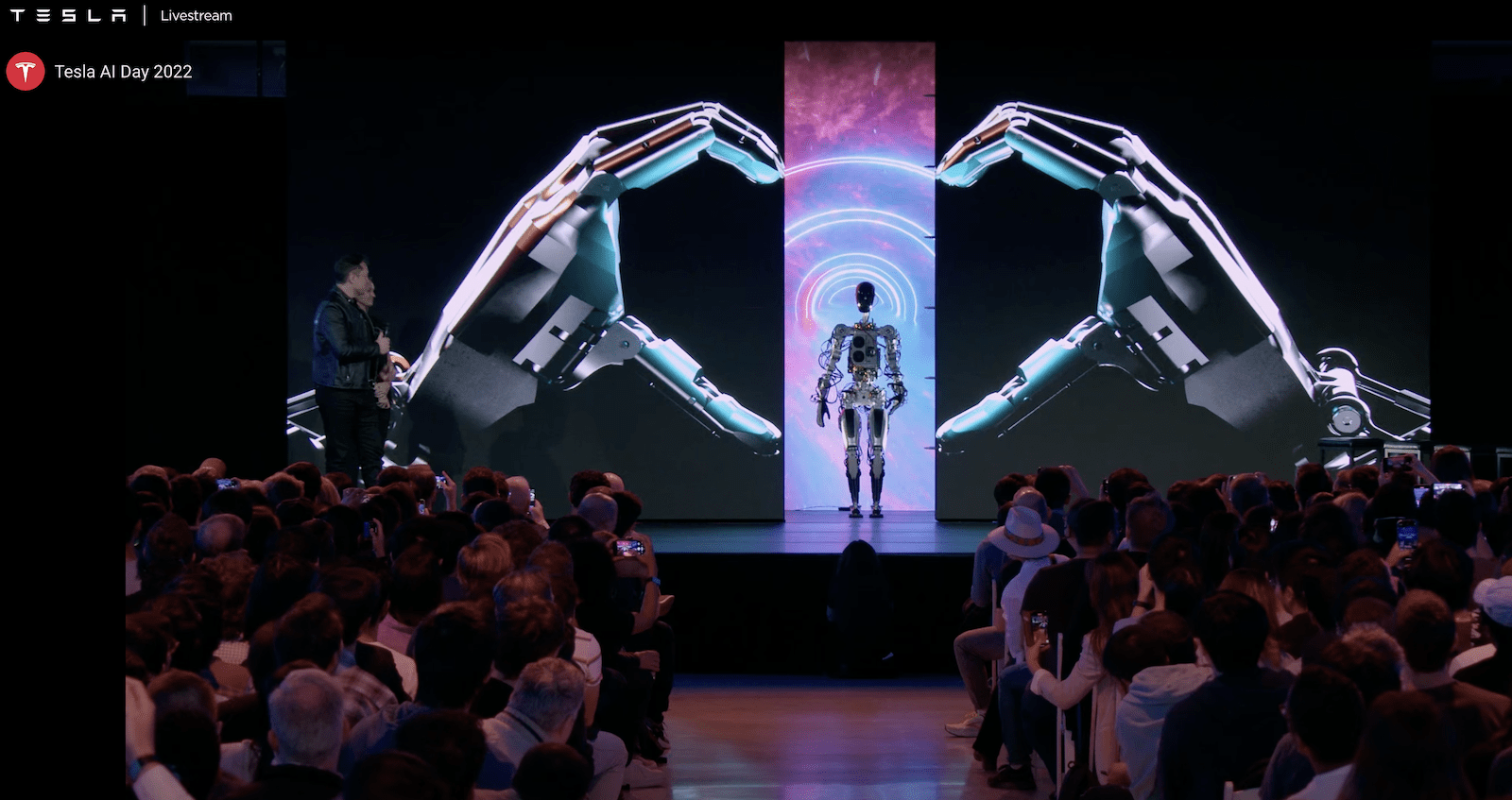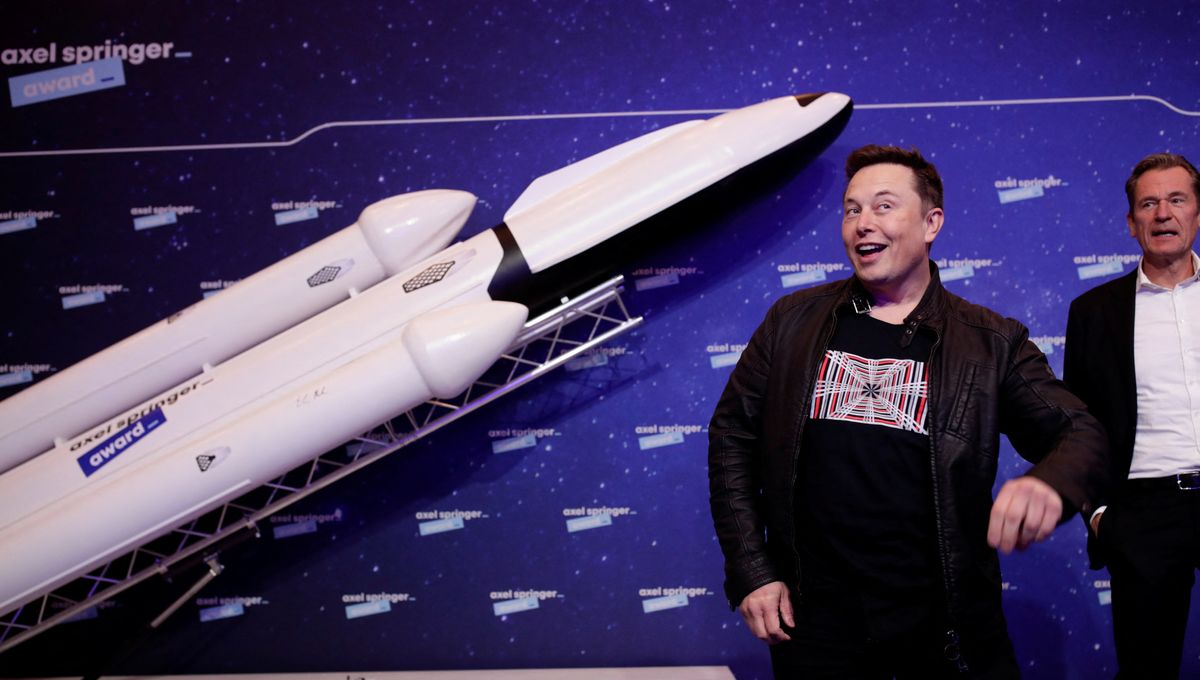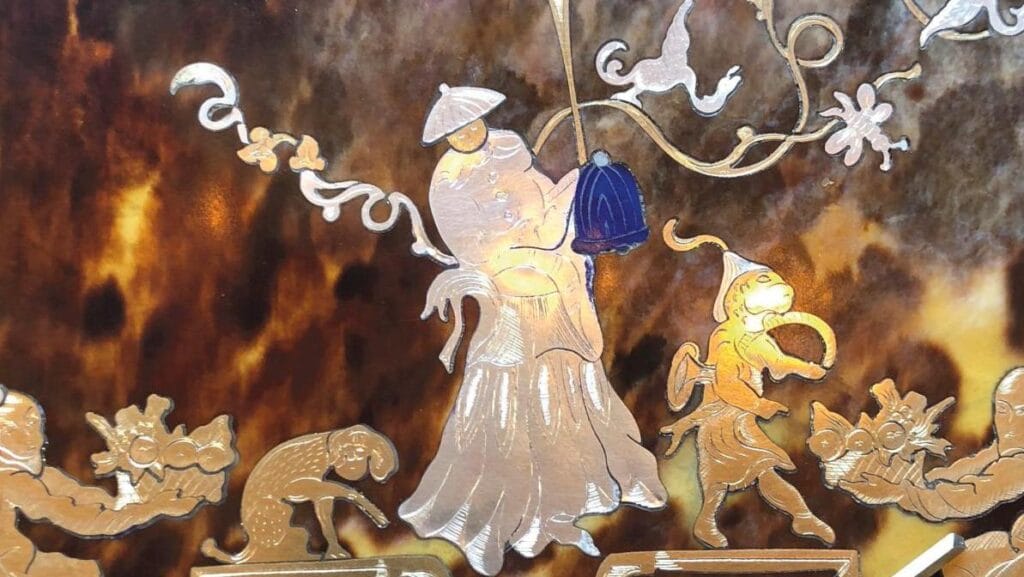Elon Musk, the man behind pioneering companies such as Tesla and SpaceX, embodies the bold vision of automation and artificial intelligence. With unwavering determination, he pushes the boundaries of technological innovation, shaking up established norms in the automotive and aerospace industries. His quest to make electric vehicles and space travel accessible to all has propelled Musk to the rank of iconic figure in entrepreneurship and cutting-edge engineering.
Table des matières
ToggleThe impact of Elon Musk on automation

Elon Musk is an iconic figure in technological innovation, particularly in the fields of automation and artificial intelligence (AI). At the helm of Tesla and SpaceX, he has not only revolutionized the automotive industry but also redefined the boundaries of space exploration.
At Tesla, Musk introduced autonomous vehicles equipped with advanced driver assistance systems, using AI algorithms to provide a safer and more efficient driving experience. Automated production in Tesla factories has also played a crucial role in reducing costs and increasing manufacturing quality.
At SpaceX, AI technologies are harnessed to optimize launches and space operations. Projects like the reuse of Falcon rockets and the automated navigation system are striking examples. These innovations make space missions more economical and reliable.
Musk has also invested in projects like Neuralink and OpenAI to push the boundaries of what AI and brain-machine interfaces can achieve. These initiatives aim to enhance the interaction between humans and machines, opening new perspectives for the future of automation.
The innovations of Elon Musk in the automotive and aerospace sectors are tangible examples of the considerable impact of automation and artificial intelligence. They not only enable significant technological advances but also transform traditional business models.
Innovations in production at Tesla
Elon Musk, visionary and founder of Tesla and SpaceX, is transforming the technology industry with impressive advances in automation and artificial intelligence (AI). His influence extends beyond these two companies; it redefines the way we perceive technological limits.
Musk’s mission has always been to make humanity multi-planetary while revolutionizing terrestrial mobility. It is in this spirit that he integrates AI and automation into nearly every aspect of his companies, from production to the management of daily operations.
At Tesla, the innovations in production are particularly remarkable. Tesla factories use sophisticated robots to assemble vehicles, significantly reducing human errors and increasing production speed. The factories are also equipped with AI systems capable of monitoring and optimizing every step of the process.
The production systems at Tesla stand out for:
- Extensive use of robots for repetitive and complex tasks.
- Implementation of AI to monitor operations in real-time, allowing for instant adjustments.
- Drastic reduction of production costs thanks to automation.
Meanwhile, SpaceX relies on automation to ensure the success of its space missions. The Falcon and Dragon rockets benefit from designs that allow for faster and more precise manufacturing. The use of automation guarantees greater reliability and minimizes delays.
Musk’s breakthroughs don’t stop there. Through his companies, he constantly pushes the limits of technological innovation, inspiring a new generation of entrepreneurs and leaders to embrace automation and AI to solve global challenges.
Automation of space flights with SpaceX
Elon Musk, an iconic figure in technological innovation, has made significant contributions to automation and artificial intelligence (AI) through his companies Tesla and SpaceX. Thanks to his bold visions, he has revolutionized diverse sectors such as automotive and space exploration.
At Tesla, Musk introduced advanced autonomous driving systems, integrating sophisticated AIs to enhance vehicle safety and efficiency. Tesla has also set up factories where automation plays a crucial role, with robots and advanced technologies overseeing much of the production. This has transformed the way electric cars are manufactured, redefining the standards across the automotive industry.
SpaceX is another domain where Musk has left an indelible mark. The company has developed automation technologies for building and launching rockets, significantly reducing costs and increasing mission reliability. This approach has enabled SpaceX to achieve feats such as reusing rockets, an achievement once unimaginable in the aerospace industry.
One major focus of SpaceX is the automation of space flights. The series of missions with the Falcon 9 rocket and Dragon capsule is a perfect example. Critical operations, from orbit to return to Earth, are largely automated thanks to advanced algorithms and AI systems. This not only increases mission accuracy but also reduces human risks, opening the door to a new era of commercial space travel.
In summary, Elon Musk has leveraged automation and AI to transform entire industries. His innovations at Tesla and SpaceX continue to push the boundaries of what is technically possible, positioning his companies at the forefront of global technological progress.
Elon Musk
- Pioneer of automation at Tesla and SpaceX
- Leader in the field of artificial intelligence
Artificial intelligence within Tesla

Elon Musk, with his revolutionary vision, has successfully integrated major advances in artificial intelligence within Tesla, transforming the landscape of automotive automation. Under his leadership, Tesla has developed autonomous driving technologies that push the limits of what we thought possible.
At Tesla, AI is used in multiple ways to enhance the safety and efficiency of vehicles. The cars are equipped with sophisticated sensors and cameras, allowing the real-time data collection system to understand and react to the driving environment.
This data is then analyzed by machine learning algorithms to continually improve the performance of driving systems. This process allows vehicles to learn from real driving behaviors and adapt to various road scenarios, making each new generation of Tesla smarter than the last.
One of the key systems developed by Tesla is Autopilot, which uses neural networks to analyze complex environments and make decisions in a split second. Users can activate features such as completely autonomous highway driving, automatic lane changing, and assisted parking.
Additionally, Tesla is working on ambitious projects such as Full Self-Driving (FSD), a suite of technologies allowing vehicles to navigate autonomously in complex urban settings. This vision represents a giant leap toward a future where cars can undertake long-distance journeys without human intervention.
The development process at Tesla also relies on an ecosystem of regular software updates, similar to those of a smartphone. These updates incorporate the latest advancements in AI, ensuring Tesla owners always have access to the most innovative technologies.
The impact of AI at Tesla is not limited to automobiles. Musk uses this same technological approach at SpaceX, aiming to automate and make space exploration more efficient. With cutting-edge technologies, such as AI for autonomous rocket landing, SpaceX demonstrates that artificial intelligence is a powerful driver of innovation, both on Earth and in space.
Elon Musk, through Tesla and SpaceX, continues to show how AI can be a transformative lever, propelling these companies to the forefront of technological innovation.
The development of Autopilot
Elon Musk is recognized as a pioneer of automation and artificial intelligence (AI) in the automotive and aerospace industries. At Tesla, this vision is materializing through increasingly autonomous and technologically advanced vehicles.
At Tesla, artificial intelligence plays a central role. The cars are equipped with automated driving systems that use a combination of sensors, cameras, and sophisticated algorithms to analyze the environment and make real-time decisions. This technology enables vehicles to identify obstacles, adhere to speed limits, and navigate safely through complex urban environments.
One of Tesla’s most impressive developments in this area is its Autopilot system. This autonomous driving system uses neural networks and advanced algorithms to provide a safer and smoother driving experience. Key features of the Autopilot development include:
- The capability to keep the car in its lane, even in dense traffic conditions.
- Automatic lane changing without driver intervention.
- Proactive management of safe distances and speed limits.
- The ability to park autonomously and exit parking spots automatically.
These features are made possible through a combination of cutting-edge hardware and software. The hardware includes cameras, radars, ultrasounds, and lidar sensors, which collect real-time data. The software uses this data to create a dynamic and accurate map of the vehicle’s environment, enabling safe navigation.
The ongoing development of Autopilot at Tesla is a testament to Elon Musk’s commitment to innovation and the implementation of AI in practical and revolutionary applications. This technological advancement is not only promising for the future of transportation but also redefines the notion of road safety and efficiency.
The ethical and technical challenges
Elon Musk, recognized as a pioneer in the field of automation and artificial intelligence, has transformed the automotive and aerospace industries with Tesla and SpaceX. Through this technological revolution, Musk strives to push the boundaries of what is possible today.
At Tesla, the integration of artificial intelligence and automation manifests through advanced features like the autonomous driving system. This system uses complex algorithms and neural networks to analyze environmental data in real-time, detect obstacles, and make safe driving decisions.
Innovation is not limited to automobiles. SpaceX, with its reusable rockets, employs AI technologies to optimize flight trajectories and improve the safety of space missions. The ability of these rockets to return to Earth and land precisely represents a significant advancement in reducing space costs.
The ethical and technical challenges associated with the adoption of artificial intelligence are numerous. On one hand, there is the question of the safety of autonomous systems, as an error could have catastrophic consequences. On the other hand, the ethical aspect raises concerns about responsibility and the social impact of these technologies on employment and daily life.
From a technical perspective, developing a reliable and secure AI requires substantial investments in research and development, as well as a robust infrastructure to process and analyze vast amounts of data. These challenges are exacerbated by the need to protect these systems from cyberattacks.
Elon Musk’s advancements in automation and artificial intelligence at Tesla and SpaceX are a testament to the power of technological innovation. While these developments are promising, they also highlight the importance of addressing ethical and technical challenges thoughtfully and strategically.
The future of automation and AI
Soutien de Trump, Elon Musk diffuse une fausse vidéo de Kamala Harris modifiée par IAhttps://t.co/vXNiOV51F1 pic.twitter.com/AqSPua5kL5
— BFMTV (@BFMTV) July 29, 2024
Elon Musk, an iconic figure in technological innovation, has revolutionized several industries through his commitment to automation and artificial intelligence (AI). At Tesla, he has transformed the automotive industry with autonomous electric vehicles. These cars use sophisticated AI algorithms to analyze the road, predict driver behaviors, and make real-time decisions.
SpaceX, another bold initiative from Musk, also employs advanced automation technologies. SpaceX rockets, like the Falcon 9, incorporate automated control systems that allow for precise launches and landings without human intervention. These innovations have not only reduced the costs of space travel but have also enhanced the safety and reliability of missions.
By integrating AI into his companies, Elon Musk has redefined the limits of what is possible. Here are some specific areas where his influence is palpable:
- Autonomous driving: Tesla is at the forefront of developing self-driving cars, enhancing safety and efficiency on the roads.
- Automated production: Tesla factories utilize advanced robots to assemble vehicles with unparalleled precision and speed.
- Space launches: SpaceX employs automated control technologies to manage launches and landings, reducing costs and increasing mission frequency.
- Mars colonization: SpaceX’s ambitions for Mars include automated systems to build and maintain a human presence on the red planet.
The impact of Elon Musk on the future of automation and AI is undeniable. His companies constantly push the boundaries of innovation, paving the way for new possibilities for our society. With a clear vision and cutting-edge technologies, Musk continues to transform our world, one algorithm at a time.
The future projects of Tesla
Elon Musk, a visionary entrepreneur, has left an indelible mark in the fields of automation and artificial intelligence (AI) through his renowned companies, Tesla and SpaceX. With an unwavering conviction to push technological limits, Musk positions himself as the undisputed pioneer of these rapidly evolving sectors.
At Tesla, AI and automation are at the heart of every technological advancement. The fleet of electric vehicles is equipped with autonomous driving features, relying on deep learning algorithms and complex neural networks. These intelligent systems allow cars to navigate, avoid obstacles, and make real-time decisions, thereby making driving safer and more efficient. Tesla goes further with its ambitious project of humanoid robots, called Tesla Bot, designed to perform dangerous or repetitive tasks, thereby relieving humans from arduous work.
SpaceX, on the other hand, employs automation and AI to revolutionize the aerospace industry. The reusable rockets like Falcon 9 benefit from sophisticated systems capable of guiding the rocket during autonomous landings. These technologies not only substantially reduce launch costs but also pave the way for Mars colonization, another grand dream of Musk. Artificial intelligence plays a crucial role in managing space navigation and maintaining onboard systems of spacecraft.
The future promises even more innovations from Tesla. Several projects are on the horizon:
- The development of full autonomous driving, where vehicles will be capable of moving without human intervention.
- The enhancement and mass adoption of autonomous battery use to optimize energy for homes and infrastructures.
- A focus on renewable energies, with integrated solutions like solar panels and Powerwall energy storage.
Musk, through his companies Tesla and SpaceX, continues to embody the spirit of innovation, placing automation and AI at the core of his priorities. His influence and achievements redefine our expectations of technology and its future applications.
The ambitions of SpaceX for space exploration
Elon Musk has always been a pioneer of innovation, often at the forefront of technological revolutions. At Tesla, he has implemented automation and artificial intelligence technologies to create increasingly sophisticated autonomous electric vehicles. These advances not only reduce the overall carbon footprint but also enhance road safety and transportation efficiency.
The application of AI at Tesla is manifested in the Autopilot, a system that uses machine learning to offer assisted driving features. This system is constantly updated through real-time data collection, ensuring continuous performance improvement.
At SpaceX, Musk has redefined the limits of space exploration, also using AI and automation to optimize space missions. The company is distinguished by its reusable rockets, a technological breakthrough that makes space travel more accessible and less expensive.
SpaceX’s ambitions go beyond simply sending satellites into orbit. Musk’s ultimate goal is to enable Mars colonization. To achieve this, the company is developing giant spaceships like Starship, capable of transporting humans and cargo to the red planet.
Future missions by SpaceX include bold initiatives such as:
- Interplanetary transport
- Living on Mars
- Exploration of deep space
The application of AI in these projects is crucial. It allows for optimizing trajectories, managing complex systems in real-time, and the autonomy of space modules. This approach opens new perspectives for humanity’s future in space.
“`





